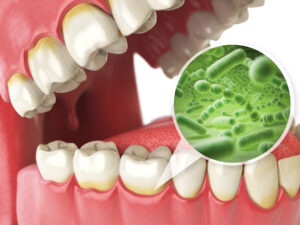Why Do I Have So Many Cavities?
 Cavities are bad news. Literally. No one wants to go to the dentist and hear that they have multiple cavities in their teeth, requiring expensive dental treatment. Almost every cavity is preventable. In order to prevent them, though, you have to know why you are getting them.
Cavities are bad news. Literally. No one wants to go to the dentist and hear that they have multiple cavities in their teeth, requiring expensive dental treatment. Almost every cavity is preventable. In order to prevent them, though, you have to know why you are getting them.
This week’s blog aims to help you understand the cavity process, your specific risk factors, and what you can do to lower your risk for cavities.
What Causes Cavities?
In order to prevent cavities, you need to understand how cavities develop. A cavity is a bacterial infection of the hard structures of a tooth. Enamel is the hardest substance in the human body, but under the right conditions, bacteria can penetrate into it, causing decay. Here’s how.
Bacteria
Cavity-causing bacteria, specifically Streptococcus mutans, lives in dental plaque. Plaque is the soft stuff that collects on the teeth all day every day. It contains these bacteria, food debris, and exfoliated tissue cells from the lining of the mouth. Plaque comes off the teeth easily with the right brushing and flossing techniques.
Carbohydrates
The bacteria in dental plaque eat simple carbohydrates. Those carbs that feed the bacteria come from your own diet. The more “sugars” you eat and drink, the more you are feeding the cavity-causing bacteria in dental plaque. This applies to all simple carbs, not just sweets. You can never have sodas or candy, but still feed the bacteria with chips and crackers.
Acid
After bacteria ingest simple carbohydrates, they produce acid. This acid is the weapon the bacteria use to soften and weaken tooth enamel, enabling them to infiltrate the hard tooth structures. The more dental plaque you have, with its resident bacteria, and the more carbs you feed them, the more acid they will produce.
Time
Thankfully, this is not an instantaneous process. It takes time for the acid to etch, or soften, the enamel and allow the bacteria to penetrate. The longer plaque sits on the tooth, and the longer you expose the bacteria to carbs, the more likely you are to develop decay.
What Factors Affect Cavity Risk?
The previous section described the essential factors in cavity development. There are certain factors in each individual that influence the risk for developing those cavities.
Plaque Control
 How effectively and consistently are you removing dental plaque from your teeth? Leaving plaque on the teeth by skipping your brushing or flossing routine increases your risk for decay because it gives the bacteria more time to work. People who do not remove the plaque from their teeth have a much higher risk for cavities than those who have a great oral hygiene routine.
How effectively and consistently are you removing dental plaque from your teeth? Leaving plaque on the teeth by skipping your brushing or flossing routine increases your risk for decay because it gives the bacteria more time to work. People who do not remove the plaque from their teeth have a much higher risk for cavities than those who have a great oral hygiene routine.
Your frequency of dental cleanings also impacts plaque control. Those who see the dental hygienist regularly for professional teeth cleanings will have less plaque buildup than those who avoid the dentist.
Diet
Your diet has a big impact on your cavity risk. This includes what you eat and drink as well as how you eat and drink. Obviously, a diet that is high in sugar increases the risk for cavities. Having a between-meal snack that is high in simple carbohydrates also increases the cavity risk. Sipping on a high-sugar soda for a long stretch of time carries a higher risk than someone who quickly gulps down that same volume of sugar. This is because it increases the amount of time that you expose your teeth to sugar.
Enamel Strength
The strength of enamel is important in resisting the acid attacks of cavity-causing bacteria. Some people have naturally weaker enamel than others do. Sometimes weakened enamel is obvious and visible to your dentist in a clinical evaluation. Other times, it is presumed by your cavity risk.
Acid, either from bacteria in dental plaque, your beverage choices, or GI problems, can drastically weaken the enamel inside your mouth and dramatically increase the risk for cavities.
pH of the Mouth
A healthy mouth is neutral or slightly alkaline in pH. This is an essential part of fighting bacteria and maintaining healthy enamel. When the pH inside the mouth drops below neutral into an acidic range, it speeds up the cavity process. An acidic mouth provides less resistance to the enamel damage caused by bacteria. The enamel is already softer than it should be, and therefore, more susceptible to decay.
Saliva
Saliva contains important enzymes and minerals to support healthy teeth and gums. If someone has low salivary flow, they lack an essential weapon in the fight against cavities. Many people experience dry mouth as a side effect of prescription medications. This greatly increases the risk for cavities by lowering the pH inside the mouth and making plaque more difficult to remove.
How Can I Lower My Cavity Risk?
You may have several of the above factors that increase your risk for cavities. If so, it is important that you begin taking steps to change those risk factors for the better and prevent new cavities from developing.
Practice Great Plaque Removal
It is your job to remove plaque from your teeth effectively and consistently between dental cleanings. The better you are at removing the plaque on a daily basis, the lower your risk for cavities will be. Here are some great tutorial videos for brushing and flossing the right way!
Commit to a consistent schedule of professional teeth cleanings with your dental hygienist. Your hygienist also reduces the risk for cavities by removing plaque from hard-to-reach places, giving you pointers on better plaque control at home, and leaving you with a “clean slate”.
Avoid Sugars/Simple Carbs
Alter your diet. Sugar isn’t good for you anyway, so cutting back on it is better for your whole body. By reducing your intake of sugars and simple carbohydrates, you are feeding the bacteria less and lowering their ability to cause cavities. If you must have something sweet, enjoy it with your meal instead of on its own. Drink your sugary beverages quickly, and avoid sipping on them for long stretches of time.
Strengthen and Protect Your Enamel
You can promote healthy, strong enamel by using recommended oral care products. Fluoride, and other remineralizing agents, re-harden enamel after an acid attack weakens it. Some people have enamel that is so weak, they need to use prescription strength products from the dentist.
Neutralize Your Mouth
The pH of the mouth has a big impact on someone’s risk for cavities. You can neutralize your mouth by avoiding acidic drinks (like sodas, alcohol, fruit juices and sports drinks), drinking plain tap water (not sparkling water because that is also acidic), and chewing sugar-free gum. Raising the pH inside the mouth makes it more difficult for the bacteria in your mouth to penetrate enamel. They have to produce more acid in a healthy mouth to cause a cavity.
Promote Healthy Saliva
If you suffer from a dry mouth, you must take additional measures to promote salivary flow in order to protect your teeth. You can speak with your prescribing doctor about the dosage on any medications which might be contributing to the dryness. You can also use salivary stimulants, like Xylimelts or sugar-free chewing gum. Drink plenty of water and avoid alcohol and caffeine because your body cannot produce a healthy flow of saliva if you are dehydrated.
More Questions about Cavities?
If you are concerned about your own risk for cavities, call Designer Smiles today. We will schedule a visit with Dr. Ann. She can answer all of your questions about cavities and assess your situation to identify your specific risk factors for cavities. We love helping our patients protect and maintain a healthy, beautiful smile!
